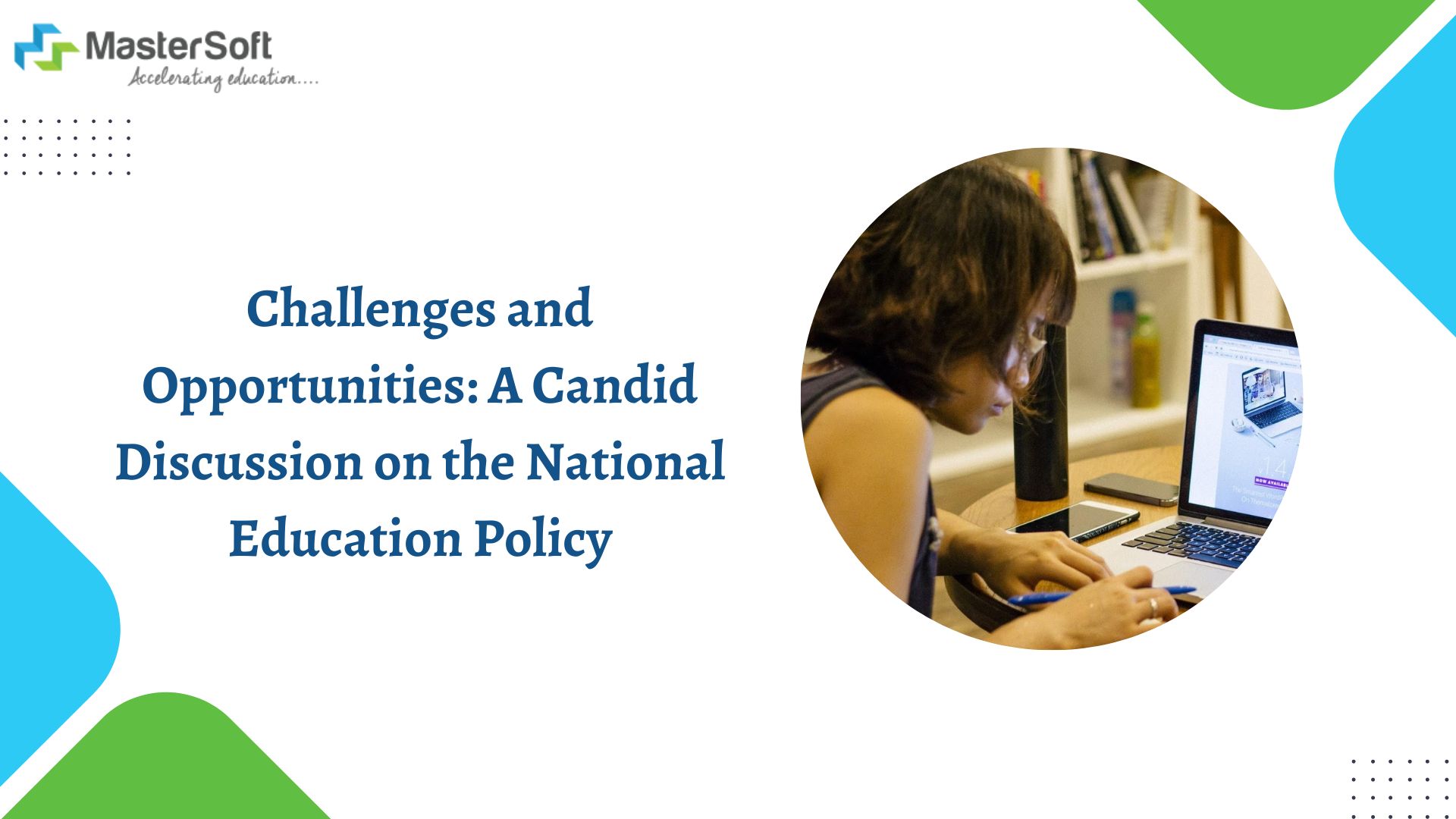
The National Education Policy (NEP) of any country plays a pivotal role in shaping the future of its citizens. In recent times, many nations, including India, have revisited and revamped their educational frameworks to address emerging challenges and tap into new opportunities. This blog aims to provide a candid discussion on the National Education Policy of India, exploring the challenges it faces and the opportunities it presents.
Challenges:
- Implementation Hurdles: One of the primary challenges faced by the National Education Policy is the effective implementation of its ambitious goals. Transforming the entire educational landscape requires substantial resources, well-trained educators, and a robust infrastructure, which might be difficult to achieve in a diverse and populous country like India.
- Digital Divide: The shift towards digital learning, accelerated by the COVID-19 pandemic, has highlighted the existing digital divide. Many students, especially in rural areas, lack access to the necessary technology and internet connectivity, hindering their participation in online education initiatives proposed by the NEP.
- Teacher Training and Development: The national education policy emphasizes the importance of continuous teacher training to enhance the quality of education. However, implementing widespread training programs and ensuring that educators stay updated with the latest pedagogical practices pose significant challenges.
- Multilingual Education: The policy advocates for a flexible and multilingual approach to education. However, incorporating regional languages into the curriculum and ensuring uniformity across the nation while maintaining educational standards is a complex task that the NEP needs to address.
- Assessment Reforms: Shifting from rote memorization to a more holistic and skill-based assessment system is a substantial challenge. The NEP aims to reduce the emphasis on board examinations and introduce continuous and comprehensive evaluation, but the transition requires careful planning and monitoring.
Opportunities:
- Holistic Learning Approach: The NEP introduces a holistic and multidisciplinary approach to learning, focusing on critical thinking, creativity, and problem-solving skills. This offers an opportunity to nurture well-rounded individuals equipped to face the challenges of the 21st century.
- Emphasis on Early Childhood Education: By recognizing the importance of early childhood education, the NEP lays the foundation for a stronger educational structure. Investing in the formative years can lead to better cognitive development and improved learning outcomes in later stages.
- Vocational Education and Skill Development: The policy places a significant emphasis on vocational education, aiming to make students job-ready from an early stage. This presents an opportunity to bridge the gap between academic learning and real-world skills, promoting employability.
- Technology Integration: The NEP acknowledges the role of technology in education and promotes the integration of digital tools and platforms. This presents an opportunity to create innovative learning environments, personalized learning experiences, and improved access to education.
- Global Collaboration: The policy encourages international collaborations and partnerships, fostering a global perspective in education. This opens avenues for sharing best practices, accessing global resources, and providing students with a more comprehensive understanding of the world.
Conclusion:
In conclusion, the National Education Policy of India stands at the crossroads of challenges and opportunities. While the road to implementation is fraught with hurdles, the potential for transformative change in the educational landscape is immense. By addressing the challenges head-on and leveraging the opportunities presented, India can build a more inclusive, flexible, and dynamic education system that prepares its youth for the demands of the future. It is essential for all stakeholders, including policymakers, educators, parents, and students, to collaborate actively in realizing the vision outlined in the NEP for the holistic development of the nation through education.

Tech Hub Digital, a one-stop destination for complete technology-related information.

